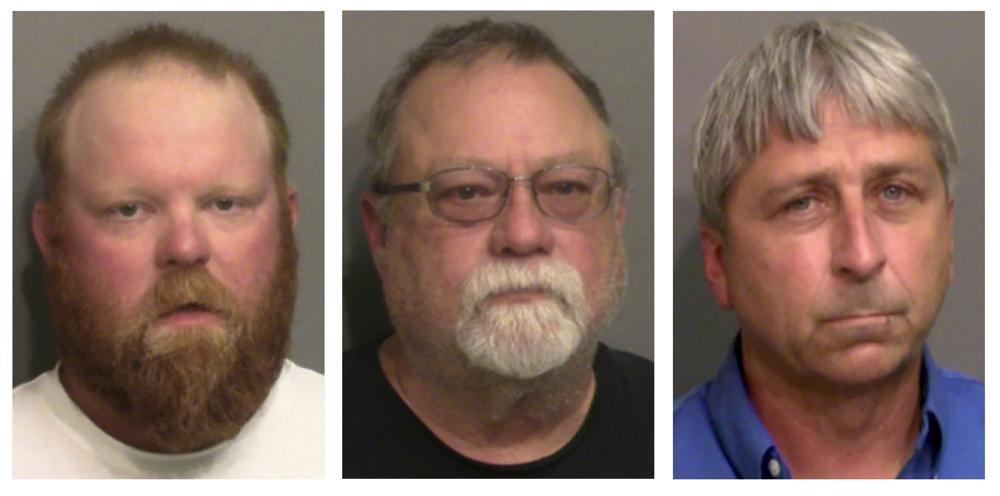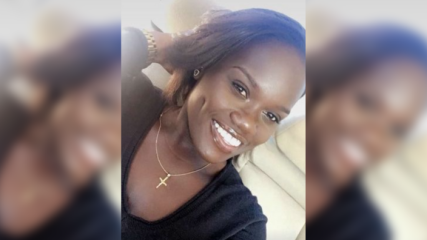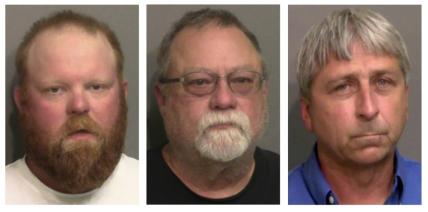Attorneys spar over trial of men accused in Arbery slaying
Kevin Gough, an attorney for one of the defendants, accused prosecutors at one point of trying to prevent the defense from having a trial
Attorneys in the upcoming murder trial of three men accused of killing Ahmaud Arbery clashed Thursday in court over limits on testimony that the defendants acted in self-defense and were in a neighborhood that was on edge because of crime.
Kevin Gough, an attorney for one of the defendants, accused prosecutors at one point during the contentious hearing of trying to prevent the defense from having a trial.
Prosecutors had asked Judge Timothy Walmsley to prevent some witnesses from testifying that the defendants were acting in self-defense or making a citizen’s arrest when they confronted Arbery in a neighborhood outside the coastal port city of Brunswick in February 2020. They had also moved to bar testimony about what Arbery was thinking at the time and how the neighborhood he was in perceived crime.
“There’s just no way to have a neighborhood testify that it was on edge or a neighborhood had a feeling,” prosecutor Linda Dunikoski said. “And this sort of drum beat that the neighborhood feeling justified a witch hunt would be inappropriate.”

Arbery’s killing sparked a national outcry last year amid protests over racial injustice. Defendants Greg McMichael and Travis McMichael — a white father and son — armed themselves with guns and pursued the 25-year-old Black man in a pickup truck when they spotted him running in their neighborhood on Feb. 23, 2020. The third defendant, William “Roddie” Bryan, joined the chase and took cellphone video of Travis McMichael shooting Arbery three times at close range with a shotgun.
All three defendants have said they committed no crimes. Defense attorneys say the McMichaels had a valid reason to pursue Arbery, thinking he was a burglar, and that Travis McMichael shot him in self-defense as Arbery grappled for his shotgun.
Laura Hogue, an attorney for Greg McMichael, objected to limits on testimony about self-defense and citizen’s arrest, saying two of the defendants had law enforcement backgrounds that could qualify them to discuss those issues.
She also objected to limits on testimony that people in the neighborhood were scared of crime, saying prosecutors could not restrict themes presented by the defense.
“The fact that we have the opportunity to present evidence in support of any theme and theory that we choose is simply the law,” she said.
Gough, who represents Bryan, called the request to bar testimony about the neighborhood “Orwellian,” saying all the defendants had been victims of theft. He also objected to restrictions on discussions of Arbery’s state of mind.
“What the state is again doing is they’re presenting you with these overbroad, premature requests for rulings which are just going to complicate things down the line,” he said.
Walmsley said existing rules prevented attorneys from eliciting speculative testimony from witnesses. He denied the request to bar testimony that the neighborhood was on edge, though he said attorneys would have to have evidence to support that. He said he would have to hear testimony about self-defense or citizen’s arrest before deciding whether it was permissible.

The three men are scheduled to go on trial on Oct. 18, and Walmsley said he intended to stick to that date.
“I’m not pointing fingers here, but some of what is going on in this courtroom over the last year or so has been arguments directed at the court that may be tailored at other audiences,” he said.
Attorneys for the McMichaels had moved to bar reporters from the courtroom during the questioning of potential jurors, arguing that it was critical they feel as comfortable as possible answering questions about race and other sensitive topics to ensure that the two defendants are tried by an impartial jury.
Hogue said in court Thursday that witnesses in the case have been lambasted on social media, and defense counsel regularly gets “toe-curling” emails and voicemails “because the nature of this case and the international attention it has received is so emotionally charged.”
The move to close the courtroom was opposed by the Associated Press and other media outlets.
“Overall, we acknowledge absolutely that this is a very important case, that there’s a great deal of public interest,” Tom Clyde, an attorney for the media outlets, said. “And for that reason, we believe openness in the jury selection process to the maximum degree possible is a very important step for the court to take.”
Clyde said later that the defense had backed off the closure request and wanted to discuss procedures to allow jurors to ask to speak away from the media if something private comes up. Jason Sheffield, an attorney for Travis McMichael, said there was no final agreement, but the two sides were working in a “cooperative way” to protect the right to information and the rights of jurors.
Have you subscribed to theGrio’s new podcast “Dear Culture”? Download our newest episodes now!
TheGrio is now on Apple TV, Amazon Fire, and Roku. Download theGrio today!


